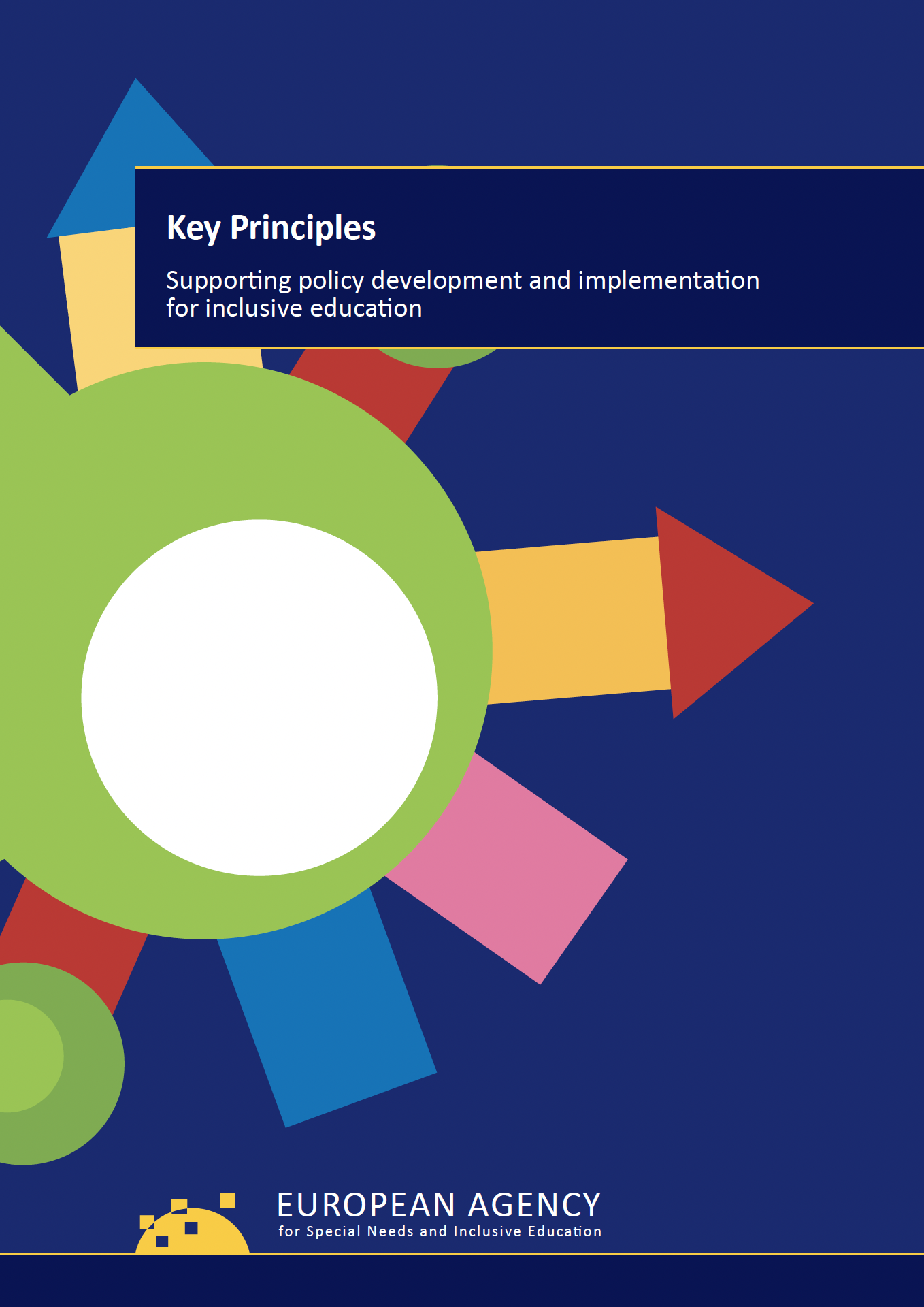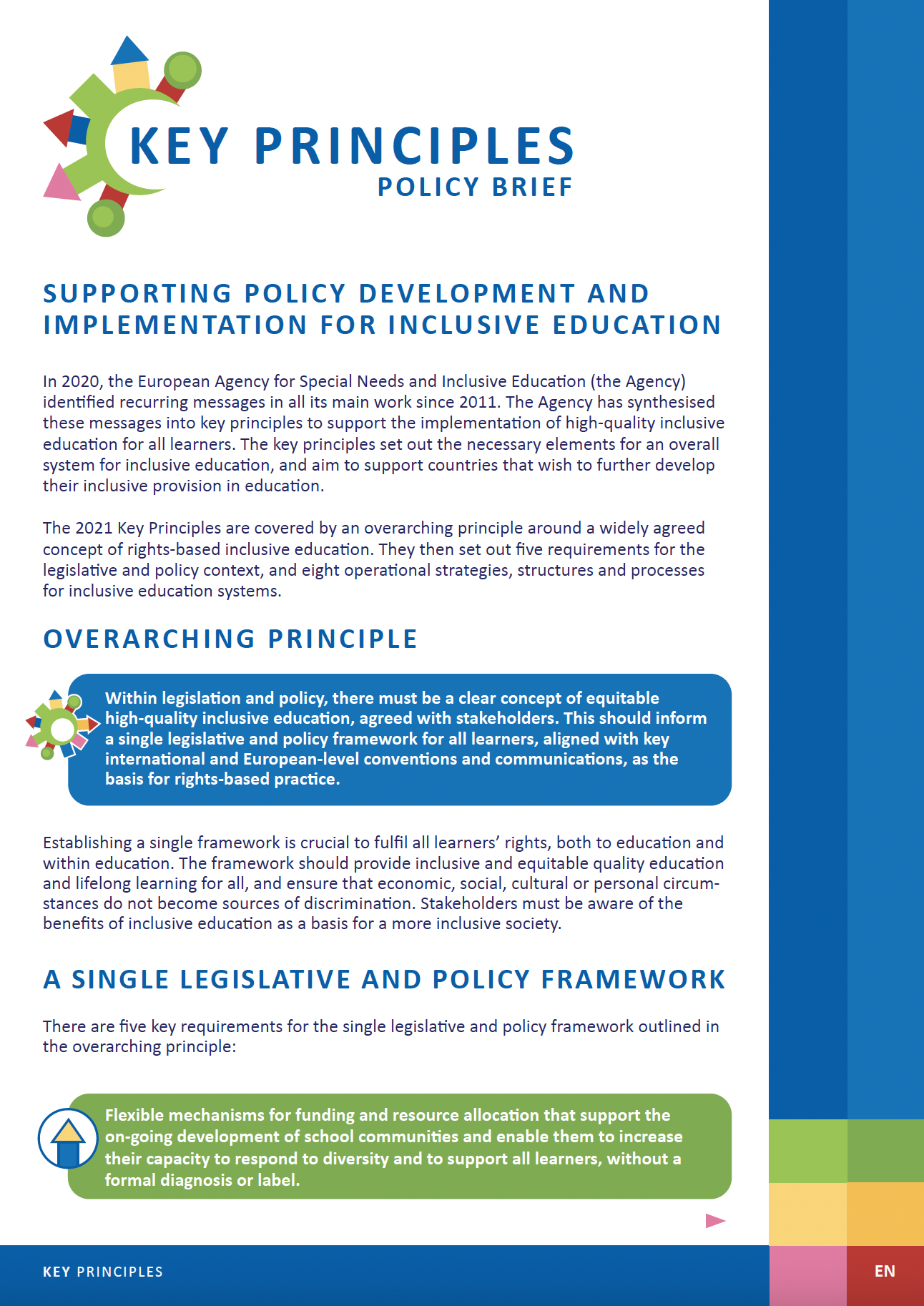A new Agency publication provides a set of 14 key principles to support policy development and implementation for inclusive education.
The fourth in a series of Key Principles publications which spans 20 years, the 2021 Key Principles publication aims to support countries to review key policy issues for inclusive education, develop their inclusive provision, and bridge the ‘policy-practice’ gap.
The 14 principles, developed from recurring messages in Agency work since 2011, align with the Agency’s ultimate vision for inclusive education: that all learners of any age are provided with meaningful, high-quality educational opportunities in their local community, alongside their friends and peers. The development of these principles reflects the Agency’s increasing emphasis on being an active agent for policy change in the field of inclusive education.
The principles cover all aspects of inclusive education systems, from legislation and policy frameworks – including resourcing, governance, curricula and quality assurance – to structures and processes that facilitate co-operation, communication, transition and data collection. If all 14 key principles are present, all levels of the education system should work together to become more equitable, effective and efficient in valuing learner diversity and raising the achievement of all learners.
The 2021 Key Principles publication is available to download in English on the Agency website. The report will also be translated into all Agency languages.
A Policy Brief providing a quick reference overview of the 14 principles is also available to download.

